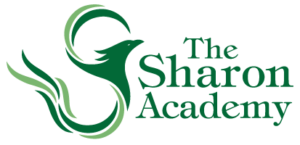Year A
Quick Links: |
The middle school cycles through a two-year curriculum, Year A and Year B.
In Year A, the middle school curriculum examines the themes of identity, responsibility, and action through three content themes: Human Rights, Food and Hunger, and Energy.
Human Rights
The year begins with the theme of Human Rights. In Social Studies, we explore the structure of the US government and our rights as citizens of Vermont and of the United States. This includes a study of our founding documents and their relevance to our lives.
Science class explores what all living things have in common, the structures and functions of cells, and genetics. With this knowledge, we are ready to investigate how humans are all similar but different because of both environmental and genetic factors. Students are then prepared to question why some people have been afforded different rights throughout history.
Health class addresses human reproduction and development from egg to birth. In Language Arts, students read To Kill a Mockingbird, by Harper Lee and The Hate U Give, by Angie Thomas. Both of these books explore themes of prejudice and justice at different times in American history. The culminating writing project for this unit is a persuasive essay about a controversial human rights issue.
Food and Hunger
The Human Rights unit is followed by a study of issues surrounding the theme of Food and Hunger. In Social Studies we examine the ways in which government policies affect the cost and availability of food in America. We research food justice issues affecting Vermont, the U.S., and the wider world. We look at individuals and organizations working to address global hunger and think about what we can do to improve access to healthy and affordable food in our own community.
Science explores nutrition, digestion, and how photosynthesis is the source of energy in the food web. Students analyze the nutritional content of food, build a model of digestion, use a calorimeter, and experiment with how plants build biomass from sunlight. Our afternoon Health class looks at personal food habits and teaches some basic cooking skills.
In Language Arts, students read Black Potatoes, by Susan Campbell Bartoletti, a book about the Irish potato famine. This book also explores agrarian societies, the impact of food on history, and the relationships between those who have food and those who do not.
In Art class, students build ceramic meals coupled with a written analysis of the nutritional value of their model meal. Finally, students spend an intensive three-week period researching and writing Our Times, a newsletter that educates the community about a variety of food issues. The newsletter is printed at a local press and is widely distributed throughout the community and on-line.
Energy
Next we move into the study of Energy and Sustainability. The unit opens with a showing and discussion of the controversial documentary, An Inconvenient Truth, to introduce students to the complex relationship between resource consumption and climate change.
In Social Studies, we study the history of industrialization and energy use. As we learn about the Industrial Revolution in Vermont and the US, we discuss the ethical and environmental impact of our modern resource consumption.
In Science, we study energy, energy transfers, and basic principles of electricity and electrical generators. We also look at the composition of the atmosphere to understand the term “carbon footprint” and to draw connections between climate change and energy use.
In Language Arts, students read October Sky, by Homer Hickam, a coming-of-age story about boys growing up in a coal mining town. Using knowledge they’ve gained throughout this unit, students research a sustainability-related issue in our own community and give an oral presentation proposing a change they believe would lead to more responsible, efficient resource use.
